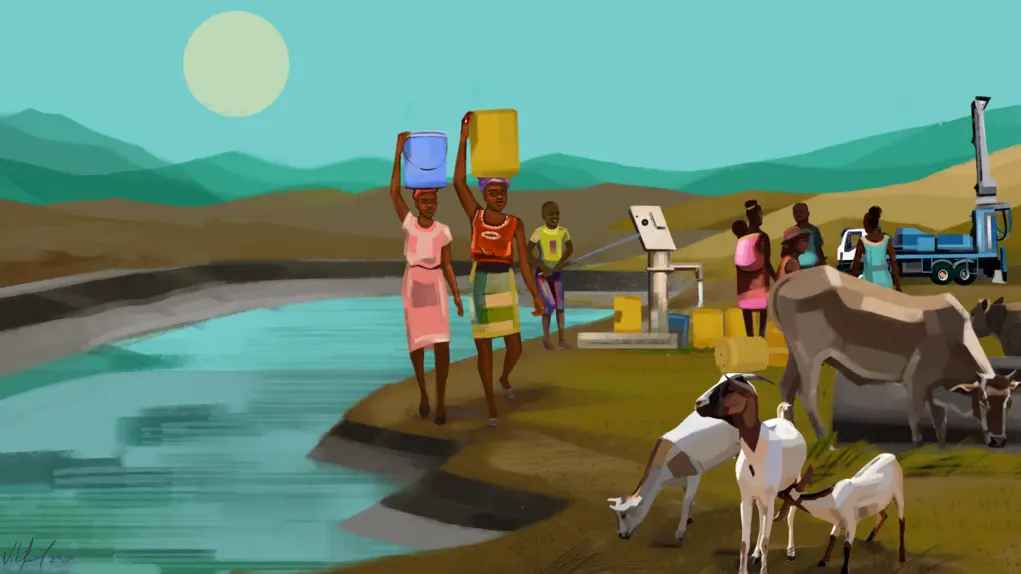Challenge: Benishangul-Gumuz regional state is home to approximately 1.2 million people and faces water scarcity both for household consumption and public facilities such as schools and healthcare facilities. Nearly 36% of the population has no access to clean and safe drinking water sources, with a marked difference between rural and urban areas. Most households in the region rely on unreliable water sources such as rivers, wells or traditional water points, which are not always safe for drinking water. Moreover, these sources often dry up during the dry season, exacerbating the water scarcity problem. Water scarcity leads to communities, particularly women and children, travelling long distances to fetch water. On top of the risk of waterborne diseases, the time and effort spent on water collection limits opportunities for education, income-generating activities, and overall development. Public facilities like schools and health care centres also face water scarcity issues. Lack of access to clean water affects students' health and well-being and hampers their ability to concentrate and learn effectively. Finally, without a reliable water supply, healthcare workers struggle to maintain proper sanitation practices, increasing the risk of infections and compromising patient safety.
Our Response: In order to address water scarcity in the region, Pharo Foundations' set of leading solutions include investing in water infrastructure development, promoting rainwater harvesting and efficient irrigation schemes techniques, encouraging water conservation practices, engaging and educating local communities, and fostering collaboration and partnerships between the government, NGOs, international partners and communities. Pharo has also implemented water treatment techniques and promoted community involvement and education in water source management. These solutions aim to improve access to clean and safe water, optimise water use in agriculture, raise awareness about water management, and ensure a sustainable water supply for the region through multi-stakeholder cooperation.
